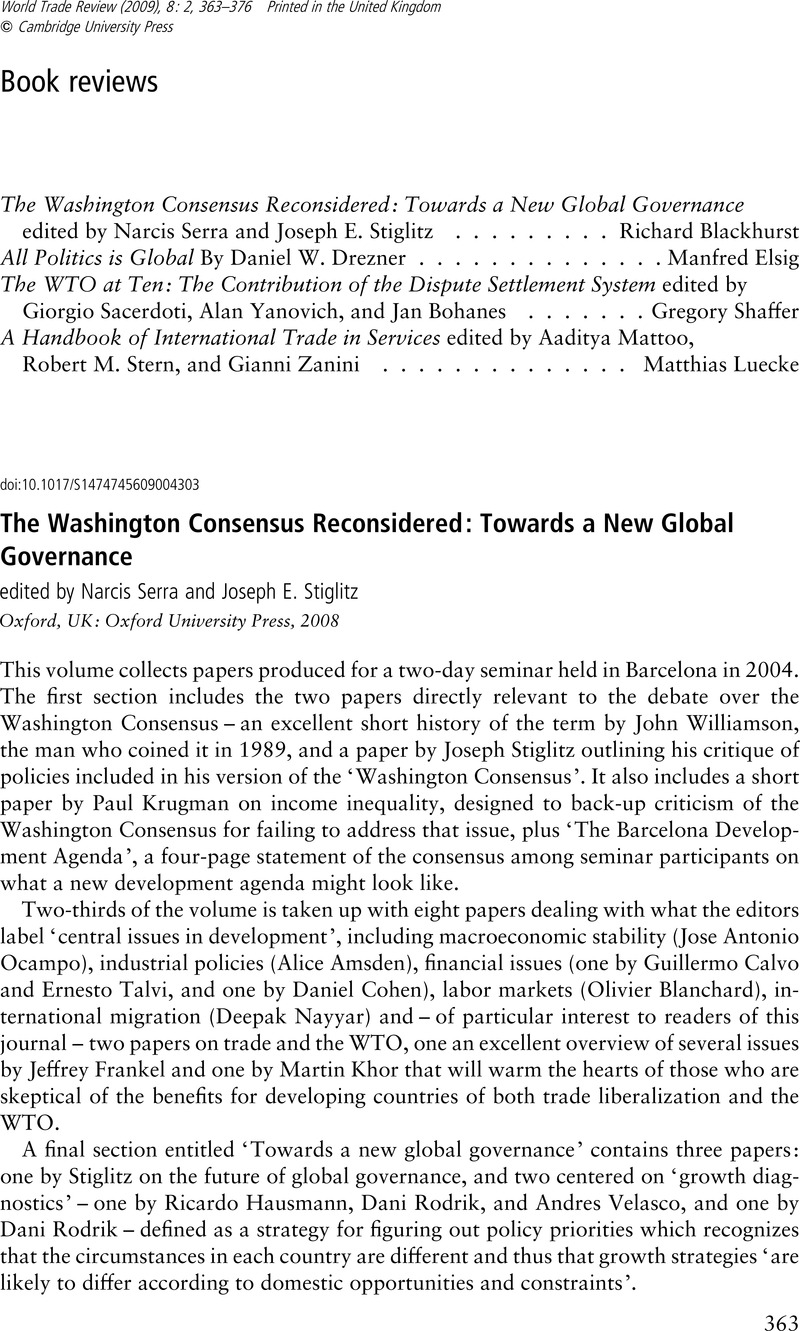No CrossRef data available.
Published online by Cambridge University Press: 15 April 2009

1 This ‘element’, in particular, draws attention to the near total neglect, among advocates of new approaches to development, of the extensive literature on public choice theory, rent seeking, and agency capture. Where is the mention of the beneficial role of external pressure – from international organizations, international obligations, and trading partners – as an aid to reform-minded ministers confronting politically powerful and entrenched special interest groups?
2 Considering the amount of time Stiglitz spends criticizing the GATT/WTO system, it would be helpful if he were correctly informed about at least the basic principles of the system. As an example, consider his statement in the footnote on page 9 of the book under review: ‘But the alternative [to subsidies], tariff protection or quotas, are not allowed under the WTO regime.’ There is a general prohibition of quotas, but tariff protection is perfectly legal. It is true there is some pressure to reduce tariffs during trade rounds, especially if the country is making its own demands on trading partners, but there is no legal obligation whatsoever to respond to those pressures.
4 Becker and Posner argue that the extent of the backlash against capitalism will depend on the depth and length of the current economic crisis.